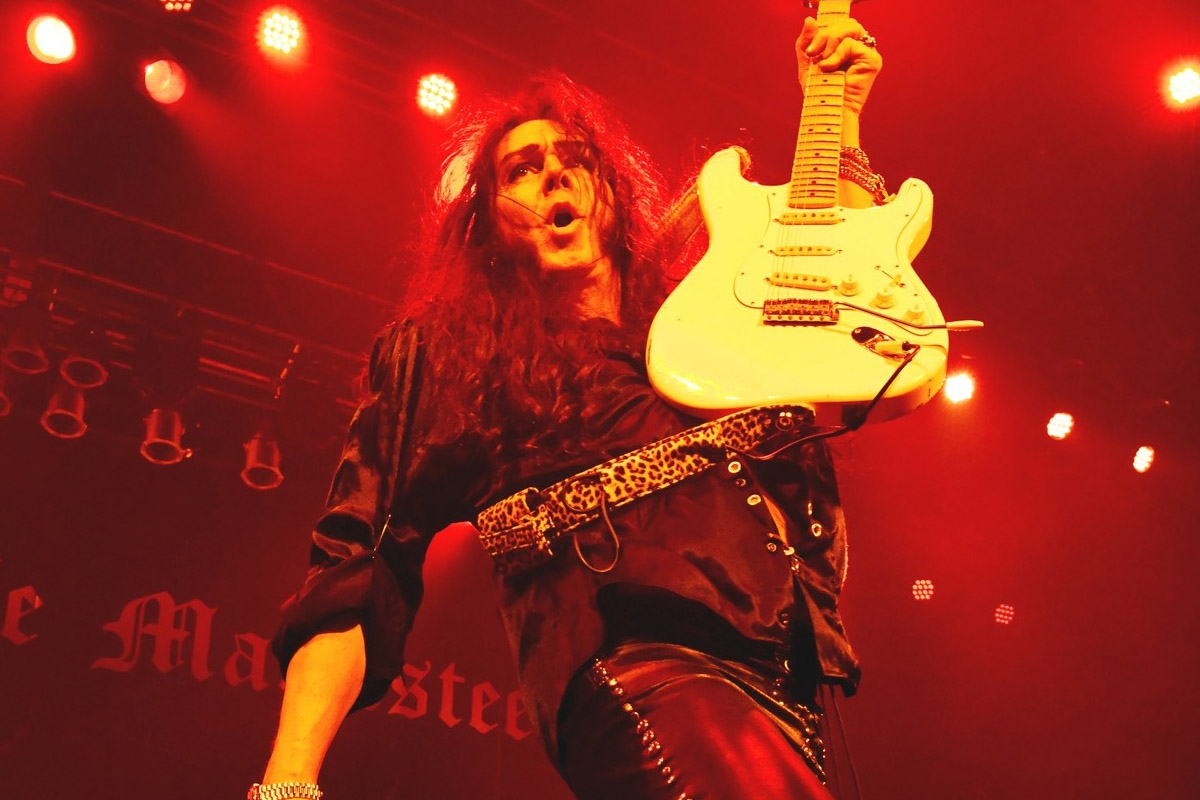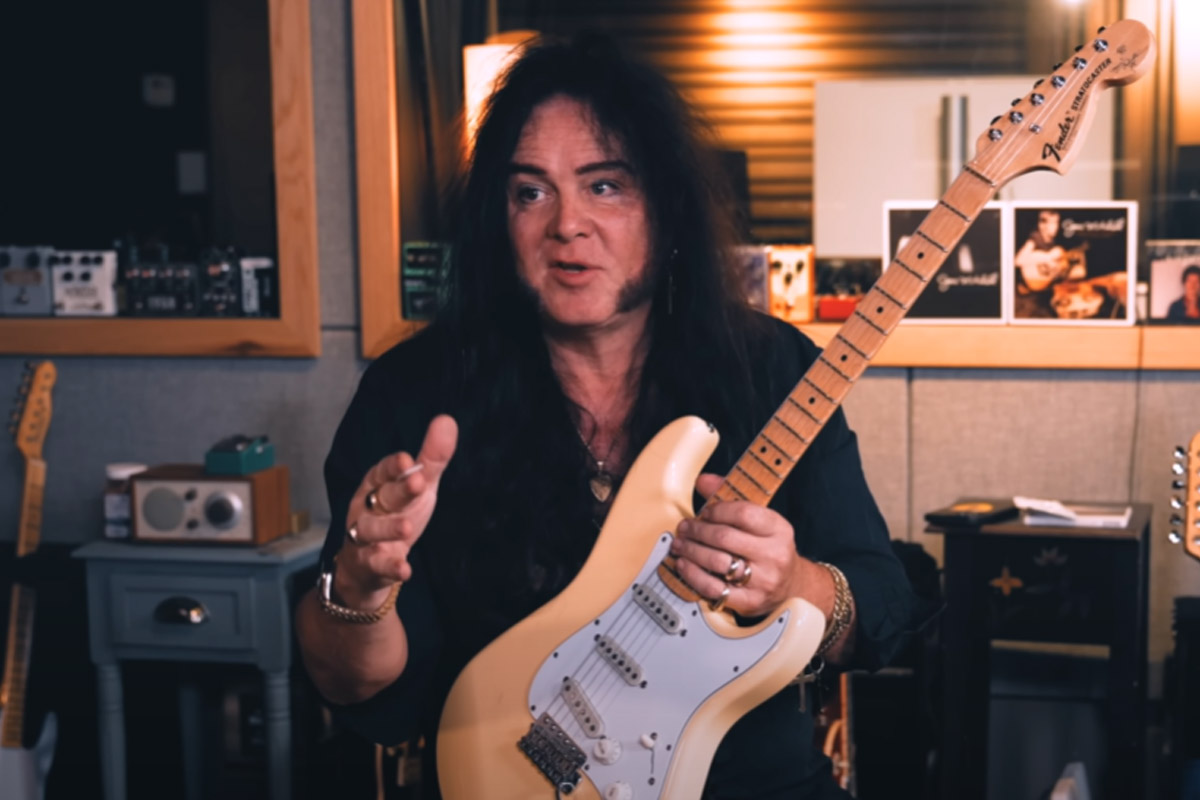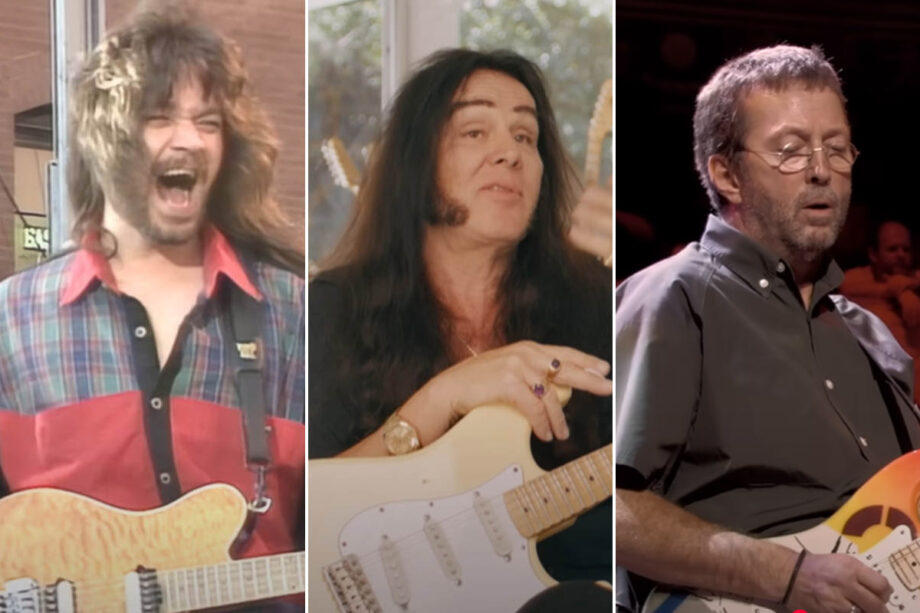Legendary guitarist Yngwie Malmsteen shared his insights about musical development in a recent interview with Music Radar. The virtuoso addressed the potential limitations of guitarists who primarily learn from other guitar players.
“The thing is, I love Angus Young and Eric Clapton. I love all the guitar players, all the greats,” Malmsteen said. “I think they are all brilliant, everyone from Brian May to Van Halen to Blackmore. They are all f*cking amazing.”
“But they all seem to have one thing in common, which is not so strange in a way, but it’s that their biggest influences and favourite kinds of musicians growing up were other guitar players,” he continued. “Here’s the next part; the guitar players they were listening to were listening to another guitar player, and on and on and on. Very incestuous. And the only thing I see that’s a problem with this is that it’s a very specific box, a guitar mechanical box way of approaching a key – a B, a D, or whatever you want to play a solo in – and that’s the trap that you can fall into.”
Malmsteen’s perspective emerges from his unique journey in developing his distinctive playing style. This approach distinguishes him from many contemporaries in the rock and metal scene.
Classical Foundations

Research published on Ultimate Metal revealed that Malmsteen’s playing style draws heavily from classical music. His primary influences include virtuoso violinist Niccolò Paganini and composers Bach, Vivaldi, and Beethoven.
These classical influences shaped his approach to guitar playing. The result was his signature neoclassical metal style incorporating complex musical structures from classical compositions.
Technical Innovation

A detailed analysis from Sweaty Spice examined Malmsteen’s innovative use of a modified Fender Stratocaster. The guitar features a scalloped fretboard that enables his characteristic fast and fluid playing style.
This unique setup became a defining element of his high-energy performances. It allows him to blend classical motifs seamlessly with modern rock arrangements.
Genre-Defining Impact

Music historians at Prog Archives noted Malmsteen’s profound influence on neoclassical metal development. His innovative approach created a new pathway in the genre.
His integration of classical arpeggios and complex musical compositions into rock music established a new template. This achievement stands in interesting contrast to his current stance against learning solely from other guitar players.





